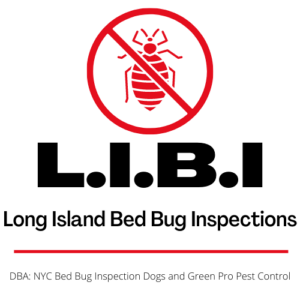Bed bugs are much more than a household nuisance. True, a bed bug infestation can be frustrating, infuriating even. But the long-term ramifications of a large-scale bed bug infestation go far beyond the daily irritation of sharing your living space with parasites and pests. The frustration of a bed bug infestation extends beyond the cost of eradication and the time it takes to fully remove the invaders.
The explosion of bed bug infestations across the country over the last few decades has been stunning in its scope. So much so that local and federal government agencies have now consider bed bugs to be a public health issue with the FDA, CDC and USDA officially acknowledging the public health impact of bed bugs in the United States.
First, Some Good News
Before we allow ourselves to slip into a panic, there is some good news to share and take comfort in. The results of years of study and observation have proven that bed bugs do not carry or transmit any diseases that are inimical to humans. As pests they are classed as ectoparasites, a category of pests that feed on the blood of their human hosts.
However, just because bed bugs do not appear to spread disease that doesn’t mean they do not have a considerable impact on the health and wellbeing of people and families who are trapped in the midst of a full-scale invasion.
The Public Health Impact of Bed Bugs
In 2002 the United States government formally acknowledged the public health impact of bed bugs. While these blood-sucking pests may not actively spread disease they do have a notable and often negative impact on our physical and mental health.
The Physical Health Impact
The physical effects of a bed bug invasion are easy to spot. Bed bugs feed by biting their human hosts and feeding on their blood. These bites typically result in a red and irritating rash or a series of clustered itchy welts. These are a result of an allergic reaction and the level of irritation is dictated by the victim’s degree of reaction. Some people suffer very mild effects; while others may experience a much more sever reaction.
In the majority of cases the physical impact of bed bug bites is limited to the rashes and irritations of the bites themselves. While bed bug bites are not believed to carry any transmittable diseases they can lead to secondary infections. The constant itching can lead to habitual scratching on the part of the victim, and that can lead to open wounds that are prone to secondary infection such as ecthyma, lumphangitis and impetigo. This is why topical analgesics are so often prescribed to reduce the itching and swelling commonly associated with bed bug bites.
The Mental Health Impact
One aspect of a bed bug infestation that rarely gets the attention it deserves is the mental health impact on those living in an infested environment. These can often be severe, particularly if the infestation is ongoing.
Bed bug attacks can result in a variety of negative emotional and psychological effects. The most common of these are anxiety and insomnia. The fear of attack can also lead to hyper-vigilance in some people who become unhealthily focused on keeping the bed bugs at bay.
Other negative psychological effects include nightmares, flashbacks, avoidance behaviors and personal dysfunction. These effects are particularly worrisome in children who have been exposed to large-scale bed bug infestations and attacks. In extreme cases the victim may need to seek professional assistance to overcome any long-term psychological injury.
Dealing with a Bed Bug Infestation
If you suspect the presence of bed bugs in your home or workplace you should contact a professional bed bug inspection and removal service as quickly as possible. The sooner you begin treatment for the infestation the sooner it can be eradicated and the less likely you are to suffer any long-term health effects from the experience.
After getting treatment it is important to follow up on inspections to help prevent the risk of a new infestation. Prevention is the key here, and the more vigilant you are at the outset the less likely you will be to experience a re-infestation. The physical and mental health of your family depends upon your diligence.
Published by Scott Palatnik
If you believe you’ve brought bed bugs into your home or office, give us a call, we can help!
Now with 2 locations. On Long Island @ 516-619-6149, or in NYC @ 212-299-9186
We are Long Island Bedbug Inspections.
Your Bedbug Inspection, and Elimination solution.


